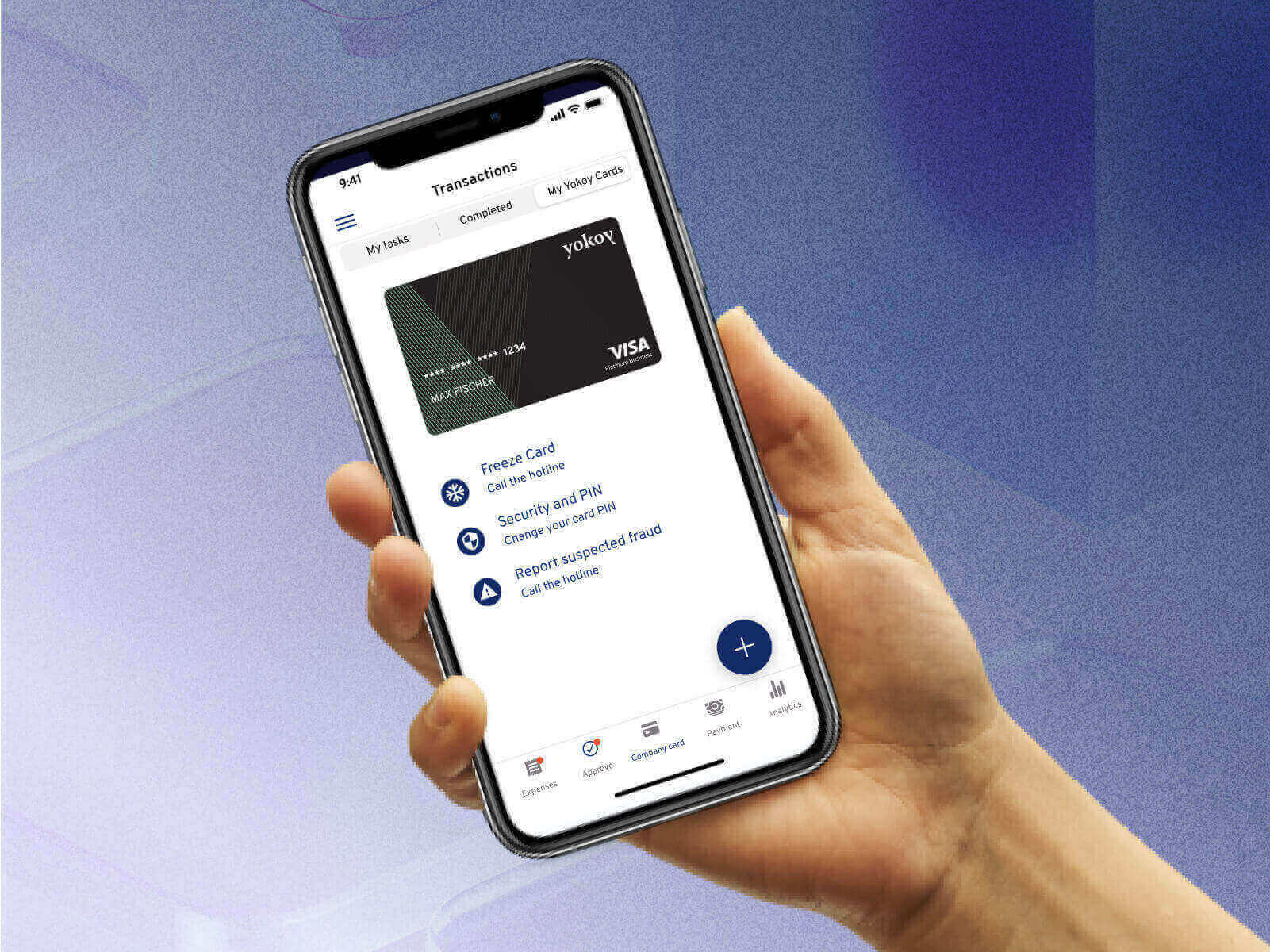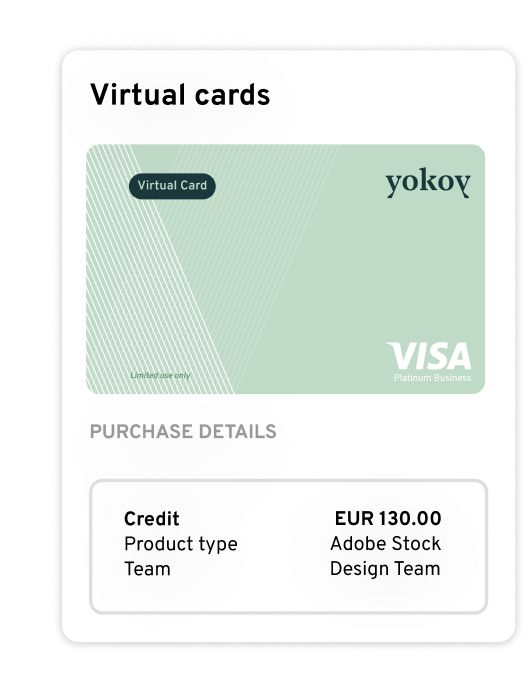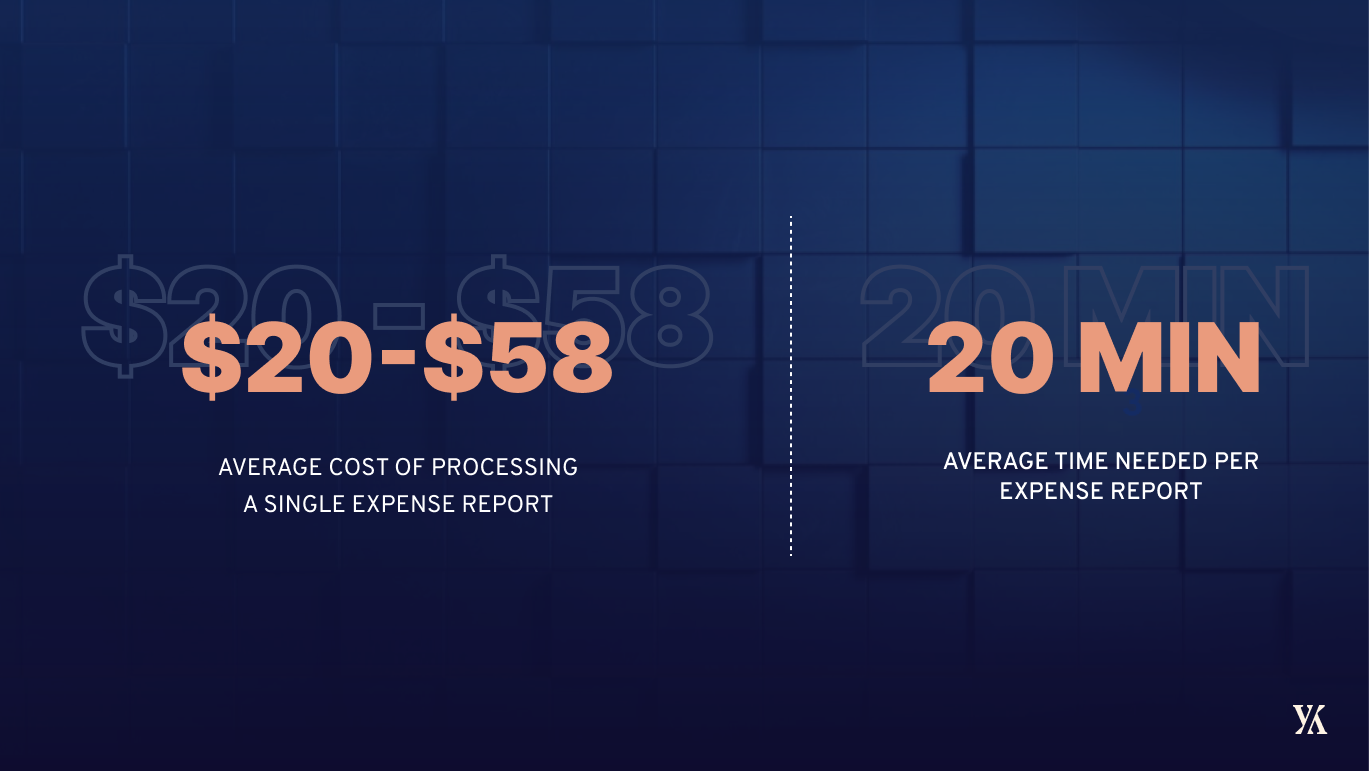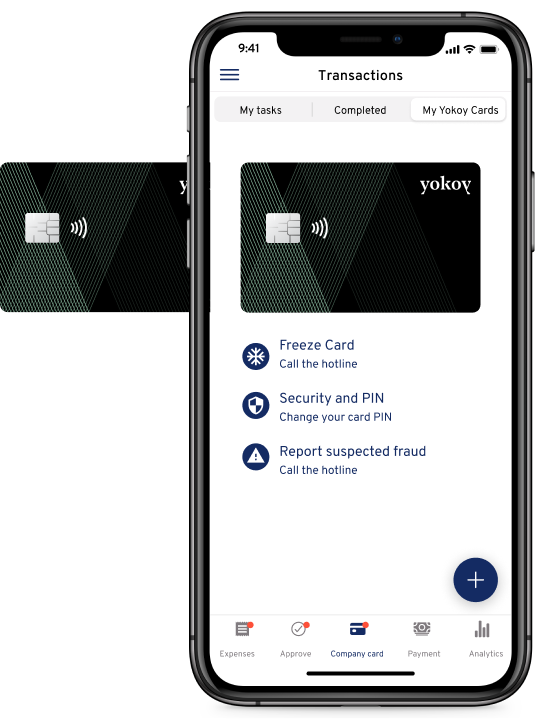Home / How Corporate Cards Benefit Businesses of All Sizes: Simplify Expense Management
How Corporate Cards Benefit Businesses of All Sizes: Simplify Expense Management
- Last updated: June 3, 2023
- Corporate cards, Travel and expense management


Product Marketing
Companies of all sizes use corporate cards to streamline expense management, enhance control over employee spending, and simplify reimbursement processes, ultimately improving financial visibility and optimizing cost management.
Corporate cards also offer access to valuable rewards and benefits, making them a strategic tool for businesses to maximize profitability.
Yet, although most corporate card programs offer cashback on transactions, these savings aren’t the main driver for companies who choose to equip their employees with business credit cards or debit cards.
Instead, businesses are starting to recognize the value of expense management tools, including company cards, in improving transparency and control over their business spend.
Such tools help business owners and finance teams to delve deeper into their spending patterns, a crucial need in today’s economic climate where expense management is not just a luxury but a necessity.
So let’s look at the main benefits of using corporate payment cards for expense management, and at the differences between traditional cards and the Yokoy Smart corporate cards.
Why do companies need corporate cards?
Overall, corporate payment cards address challenges such as:
Streamlining expense management
Effective expense management is a fundamental aspect of maintaining financial stability and maximizing profitability for businesses. As companies strive to optimize their operations, the need for efficient tracking and control of employee expenditures becomes increasingly crucial.
In this context, corporate cards have emerged as an indispensable tool. By providing a centralized and streamlined approach to expense management, corporate cards offer full transparency over business expenses, making it easier to control business spend.
Enhanced control and oversight
With corporate cards, businesses can establish spending limits and specify where and how funds can be used. This level of control ensures adherence to expense policies and minimizes the risk of unauthorized or unnecessary spending.
By granting decision-makers the ability to monitor expenses in real-time, corporate cards empower companies with greater financial control and strategic planning capabilities.
"We chose the Yokoy card as our corporate card because thanks to the zero-fee model, we not only enjoy the ideal solution on the cost side, but at the same time it allows us to avoid a lot of manual administrative work as well as making our spend management much clearer and more efficient."
Peter Grausgruber, CFO of Bitpanda
Dealing with out-of-pocket expenses
Consider your own processes for a moment. Are you relying on employees to email you their invoices and receipts, then manually tracking and rectifying out-of-policy spending? These steps consume valuable time and incur additional costs for the finance department.
By using corporate cards and implementing strict spend controls, these cumbersome processes can be streamlined, eliminating unnecessary costs and improving visibility and control over card spending.
Simplified employee reimbursements
Traditional expense reimbursement processes often entail employees using personal credit cards to cover business expenses and later submitting reimbursement requests. Corporate cards eliminate this hassle by allowing employees to charge expenses directly to the company, consequently improving cash flow and fostering employee satisfaction.
We’ve detailed the topic of reimbursements in the article below.
Blog article
Managing Expense Reimbursements at Scale: Challenges and Best Practices
Some organizations hesitate to automate their expense reimbursement process, as they worry that automation might complicate things. In this article, we look at how large companies can tackle the challenge of reimbursing at scale, with the help of automation.

Vishnuram Muthuraman,
Product Marketing
Handling complex vendor payments
Each vendor and supplier has their own payment terms and billing cycles. Without flexibility in payment, you may find yourself bound to rigid terms or subject to late fees, resulting in irregular cash flow.
Missed savings opportunities
In today’s fast-paced business environment, companies require real-time insights into their spending with just a click, rather than waiting until the end of the month. Access to these insights ensures optimal cash savings and prevents wasteful expenditures, such as duplicate spending.
Types of corporate cards
Corporate debit cards
The debit card is the most popular means of payment in the private sector. The difference to the credit card lies in the method of debiting: the debit card takes bookings directly from the bank account and debits the account promptly, while the credit card does that at regular intervals, for instance once a month.
Debit cards are only suitable for corporate cards to a limited extent, because the classic debit cards are rarely used for online payments, which is needed for flights or software subscriptions. On the other hand, the risk of fraud is very low as the available budgets are pre-approved, and transactions can be tracked in real time.

Corporate credit cards
The business credit card is widely known. It is very convenient, because employees can make payments both on-site and online. They are also often used to confirm reservations. However, they carry a higher risk of fraud than debit or prepaid cards, not only by third parties, but also by their own employees.
Another negative point is the monthly billing, the time delay makes reclaiming private expenses costly and cumbersome.
Prepaid cards
With prepaid cards, all payments can be made exactly like with a credit card. In addition, companies can set precise budgets and thus massively limit the risk of fraud.
If a card is linked to a fully automated spend management solution, transactions can even be seen in real time. Billing then becomes a breeze. The prepaid card is therefore the best alternative to debit and credit cards.
Virtual cards

More and more companies are turning to virtual cards (also called disposable or sometimes even throwaway cards) for business payments. For payments on the Internet, this is a secure and practical alternative. The relevant card details are then simply displayed for the payment, without a physical card having to be issued.
Companies can either use virtual cards for specific payments or authorize certain people to use them. In both cases, the company can decide on restrictions, such as the validity period, spending limit or location and period of use.
For example, with the Yokoy Smart virtual cards, you can equip your employees with a means of payment in seconds, while you stay in full control of corporate spending and save valuable time thanks to automatic transaction reconciliation.
Playbook
The Yokoy Smart Lodge Card
Classic lodge cards have been available for years, but their functionality has never been questioned – until today. We’re changing the game by bringing the lodge card into the here and now.

Traditional corporate cards: Main drawbacks
Traditional corporate cards suffer from several significant drawbacks that impede their efficiency and effectiveness. These drawbacks are rooted in outdated processes and limitations that hinder smooth operations and financial management.
Here are the main drawbacks of traditional corporate cards:
Paper-based processes
Ordering, administration, and spend management for traditional corporate cards often rely on cumbersome paper-based processes. From requesting a card for a new employee to reconciling expenses, these manual procedures are time-consuming and prone to errors.
The need for signed letters, paper statements, and text file imports adds unnecessary complexity and slows down the entire workflow.

Limited transaction visibility
With traditional corporate cards, obtaining an accurate and up-to-date overview of transactions can be challenging. Companies typically receive a monthly invoice or statement that lists payments and transactions per card.
However, this information may not be readily accessible or easily comprehensible. It requires additional effort to match expenses with credit card transactions, which can lead to delays, errors, and difficulties in tracking and reconciling expenses. Thus, in a traditional setup, companies lack real-time expense tracking capabilities.
Centrally billed vs. decentrally billed setups
Traditional corporate cards offer two billing setups: centrally billed and decentrally billed. In a centrally billed setup, the company receives the invoice/statement and is responsible for paying it in full.
In a decentrally billed setup, the cardholder receives the statement and must pay the invoice. This setup introduces complexity in managing company spending and can lead to confusion regarding who is responsible for settling the charges.
Manual administrative burden
Card administrators often rely on outdated methods, such as Excel spreadsheets, to track employee card assignments, limits, and expiration dates.
This manual administrative burden is time-consuming and prone to errors. It can be challenging to maintain an accurate and up-to-date record of card details, resulting in inefficiencies and difficulties in managing the corporate card program effectively.
Yokoy Smart Corporate Cards
Pay the smart way
Simplify your card administration and gain real-time visibility and control over your global spend with Yokoy’s Smart Corporate Cards.

Lack of virtual card solutions
Traditional corporate cards are primarily physical cards, which means there are delays in receiving the card by mail. Additionally, there is often a lack of instant virtual card solutions, especially when physical cards are not necessary, such as for online purchases or digital services.
This limitation hampers the flexibility and convenience that modern businesses require, particularly in the digital era.
Limited mobile app integration
Mobile apps that offer real-time spending tracking and mobile payment options like Apple Pay or Google Pay may be lacking for traditional corporate cards. This restricts employees’ ability to track their expenses on the go and make convenient payments using their mobile devices, leading to inconvenience and potential delays in financial processes.
Annual fees
Traditional corporate cards often come with annual fees, adding an additional financial burden for companies. These fees can deter companies from providing cards to their employees, especially if the benefits and convenience provided by the cards do not outweigh the associated costs.
Given these drawbacks, businesses are increasingly seeking alternatives that offer improved transaction visibility, reduced administrative burden, instant virtual card options, seamless mobile app integration, and cost-effective management, ultimately enabling more efficient and effective corporate card programs.
This is why we’ve created the Smart corporate cards as part of the Yokoy Pay offering.

Planted keeps spend under control with Yokoy
“A corporate card should be secure and uncomplicated – and this is exactly what the Yokoy Mastercard offers. In addition, the card is smart, saving us significant time.”
Christoph Jenny, Co-founder Planted

The Yokoy alternative: Smart corporate cards
At Yokoy, we address these challenges and bring innovation to the business payments space with our Smart corporate cards.
The Yokoy corporate cards enable companies to streamline their card programs, enhance expense management, and improve the overall user experience for both administrators and cardholders, offering full transparency and spend control with maximum of flexibility.

By connecting directly to spend management tools, our smart corporate cards can meet the needs of modern businesses and their employees better than their traditional counterparts, whether in the form of a credit card, debit card, or prepaid card.
Why?
- Built-in compliance: You decide what your employees spend money on, ensuring compliance with corporate and regulatory guidelines.
- Automated reconciliation: Card transactions are automatically fed into Yokoy and matched with receipts, reducing the workload.
- Full liquidity control: Set individual spending limits down to the employee level and allocate money exactly where it is needed.
- Detailed card transaction overview: The Yokoy card dashboard gives you full real-time control of all cards and transactions.
- Flexibility: Yokoy makes card administration a breeze. Virtual cards can be created quickly and in line with processes.
The virtual corporate cards and physical cards are a key part of our offering, creating comprehensive spend transparency in companies.
Each smart card is directly integrated with Yokoy, giving you an overview of all your expenditures in real time, while automatically reconciling every transaction with the respective receipts. There are no card or foreign currency fees and no foreign exchange surcharges. Additionally, companies benefit from cashback on every transaction.
If you’d like to see our corporate cards in action, you can book a demo below.
Simplify your spend management
Related content
If you enjoyed this article, you might find the resources below useful.


